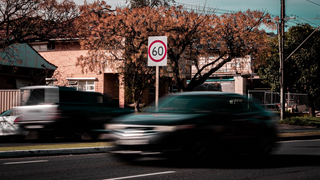Everyone is in desperate need of a summer holiday this year.
With the ease of hopping on a ferry to neighbouring European countries, or boarding the Eurotunnel to France, driving holidays on the continent have proven increasingly popular.
However, it's definitely worth knowing what to expect before you go so you're not caught short if anything were to go wrong.
Do you know your car's equity position? Find out today by signing up to Car Credible for a full car finance appraisal.
Even if you have embarked on a trip like this in the past, you'll find that some things may have changed recently due to Brexit restrictions being brought in.
There is nothing like going on a European adventure though, and you shouldn't let anything stop you from moving ahead with one. Let's get into everything you should be aware of before setting off.
EU travel post-Brexit
Despite the UK leaving the European Union (EU), you do not need any special visas or a green card to travel around, and you can still use your UK driving license.
The point of a green card is to show that you are insured to drive in Europe, but this is no longer a requirement and therefore less to worry about before you go.
If driving your own car, you will need to take your V5C logbook with you, and even if your car has a GB logo on the number plate, you will still be required to put a GB sticker on the back of your car.
So there's not too much change there even though we are no longer part of the EU. But it's still critical you follow the requirements to ensure you avoid getting yourself into trouble with local law enforcement.
Speeding
EU countries are pretty hot when it comes to speeding and there can be some significantly high fines if you are caught over the limit.
The police have the right to seize your car or even impound it if they believe you to be going considerably over the limit in place.
But most of the time it would be a fine ranging from as little as €10 in Germany to a bank-breaking €4,400 in Italy - all depending on how much you are exceeding the limit by, of course.

It's highly unlikely that any speeding offences would transfer over to points on your license back home - namely because of the lack of data sharing between the UK and EU since Brexit, but just be careful.
The simplest way to avoid these charges is to not speed at all. Always keep an eye on the road signs, especially when going from a rural to an urban area and vice versa.
Using a sat-nav could be a good way around missing any vital speed signs as most will typically flash up the maximum speed limit of the road you are on.
Tolls
We have several motorway tolls in the UK, but there are far more across Europe.
Motorways make up the vast majority of roads on the continent so it tends to be pretty tricky getting from one place to another without avoiding a toll stop.
If you don't have the local currency on you, that should be no issue as they tend to accept debit and credit cards - unlike some tolls in the UK.
The amount you pay will vary on the distance you are travelling, as they are located at various points across the whole motorway rather than just one stop along the way.
You won't often have to pay particularly large amounts at each toll, but that can quickly add up if travelling along the whole stretch of motorway, with some routes costing as much as €65 if you were to go from one end to the other.
It's best to do a bit of research about where toll booths are across the duration of your journey so you can budget for them ahead of time and not get caught out.

Insurance
Most standard 12-month insurance policies in the UK will cover you in some EU countries for 30 days. But it would be wise for you to check your insurance policy in full to confirm that.
Some comprehensive insurance may only offer you third-party cover abroad which could affect you if you were to be involved in an accident that's your fault.
You should consider upgrading your insurance to ensure you have the best coverage available, just in case anything were to happen.
Police encounters
Standard police checks in Europe are fairly commonplace and you shouldn't be worried if you are asked to pull over.
The laws are not too dissimilar to those in the UK, so you should act like you would if pulled over here and be prepared to show the same documents as you would at home.
However, if you have committed an offence and are asked to pay an on-the-spot fine, you should be prepared to do so, or risk your car being seized or even impounded.
Staying safe
It's best to prepare your routes in advance so you know what to expect when travelling.
Make sure you know which roads you need to take, where you may need to stop for petrol, and places where you can stop for food, drink or rest if you need it.
Because you aren't driving in your own country, it is best to err on the side of caution and take that extra little bit of care when out there.
The Europeans drive on the other side of the road to us so it can take a little bit of getting used to when you immediately start driving.
Take particular care when you come to roundabouts and junctions as they will appear quite strange initially.
/driving-in-europe.jpg)


/car-tax-disc-image2.jpg)
/money-saving-tips.jpg)
/car-tax-sorn.jpg)